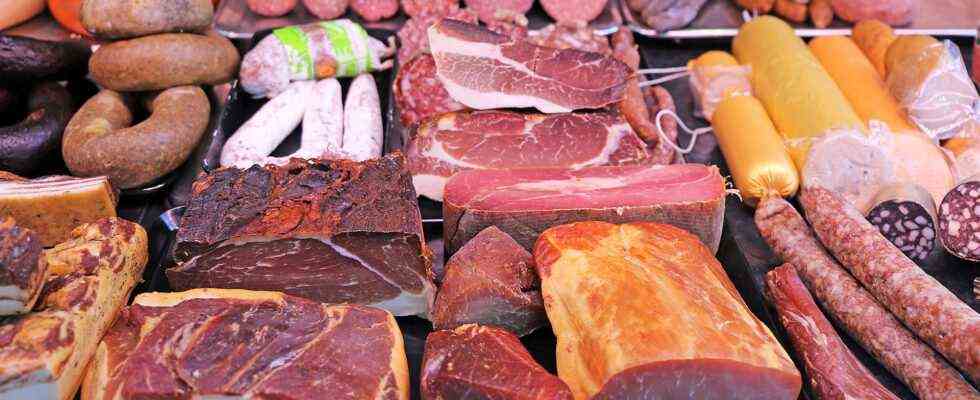Status: 11/30/2021 3:30 p.m.
Does advertising for meat offers seduce consumers into excessive and climate-damaging consumption? The environmental protection organization Greenpeace calls for stricter regulations – similar to those for the tobacco industry.
The environmental protection organization Greenpeace has spoken out in favor of regulating advertising for meat through precise regulations. “The production of animal products is one of the largest greenhouse gas emitters in the world. In order to be able to achieve climate and species protection goals, the food sector has to be radically converted,” said Stephanie Töwe, agricultural expert from Greenpeace.
At the World Climate Conference in Glasgow in October, Greenpeace declared that the climate neutrality that Germany is aiming for in 2045 can only be achieved by halving the number of animals. Three quarters of the agricultural greenhouse gases came from animal husbandry, 14 percent from the production of plant-based foods and around ten percent from the cultivation of energy crops, according to a study by the Öko-Institut on behalf of Greenpeace.
Tax breaks for fruit and vegetables?
On the one hand, there is a need for incentives for consumers to consume less meat and dairy products, according to the study – for example through tax breaks for fruit and vegetables. In addition, financial incentives are necessary for farmers to cope with the conversion of agriculture and to make the withdrawal from animal husbandry attractive.
As a consequence, Greenpeace is now calling for the advertising of climate-damaging products to be regulated. Meat consumption should no longer be fueled with false images and slogans, according to Töwe. The Greenpeace expert criticized the meat industry negligently sticking to the massive advertising of its questionable products.
“Perfidious Marketing Tactics”
Greenpeace has commissioned a study of meat marketing in France, Poland, Spain, Denmark, Germany and Switzerland, which has now been published under the title “Uncovered. The seven myths of the meat industry”. The meat industry continues to try “with perfidious marketing tactics, similar to those of the tobacco industry, to market meat and meat products as particularly natural, necessary and healthy foods,” it says.
Over 51 brands were examined; The focus was on the strategies and symbols with which the meat industry tries to stimulate meat consumption in European markets.
Not only Greenpeace points to the close connection between climate protection and animal husbandry. Other experts also see great potential in agriculture for reducing greenhouse gas emissions. Scientists from Berlin’s Humboldt University, for example, point out ways to avoid excess nitrogen in fertilization and to reduce methane emissions in animal husbandry.
Emissions from factory farming
According to the study “Climate Neutral Germany 2045”, which was presented in June by the Climate Neutrality Foundation, current emissions from agriculture can be reduced from almost 70 million tons to 58 million tons by 2030 and to around 40 million tons by 2045. Foundation director Rainer Baake sees a key problem in factory farming as well as nitrogen surpluses.
According to the study, nitrogen surpluses are one of the largest sources of emissions in agriculture, accounting for more than a third. Animal husbandry causes emissions of a similar magnitude, it says there. Greenhouse gas emissions can be reduced by using more plant-based foods, as these are significantly more resource-efficient than foods of animal origin.
Greenpeace sees it similarly. The new study states: “Given the impact that increased meat consumption can have on human and planet health, a profound global shift towards a plant-based diet is urgently needed.”
Germany’s meat consumption is falling
The current Federal Minister of Agriculture, Julia Klöckner (CDU), announced months ago that she would be examining a ban on advertising with low food prices, in particular a ban on advertising prices for meat. The point is that enticement offers for meat should be prohibited for ethical reasons, said Klöckner. More animal welfare is only possible if the willingness to pay more for meat increases.
Meat consumption in this country is slowly decreasing. While the per capita consumption was around 62.4 kilograms in 2010, it fell to 57.3 kilograms in 2020. However, Germany is one of the largest meat producers and exporters worldwide and is, for example, the third largest producer of pork after China and the USA (2019).

